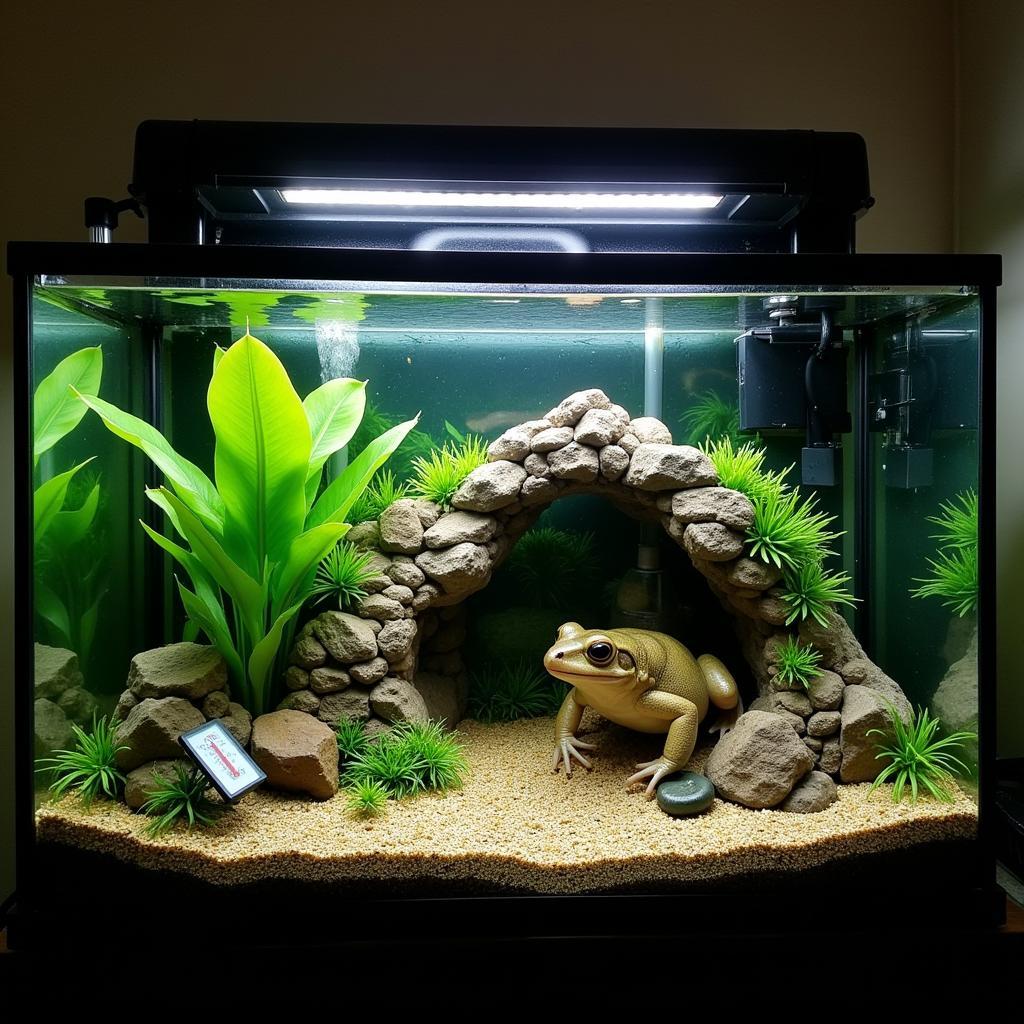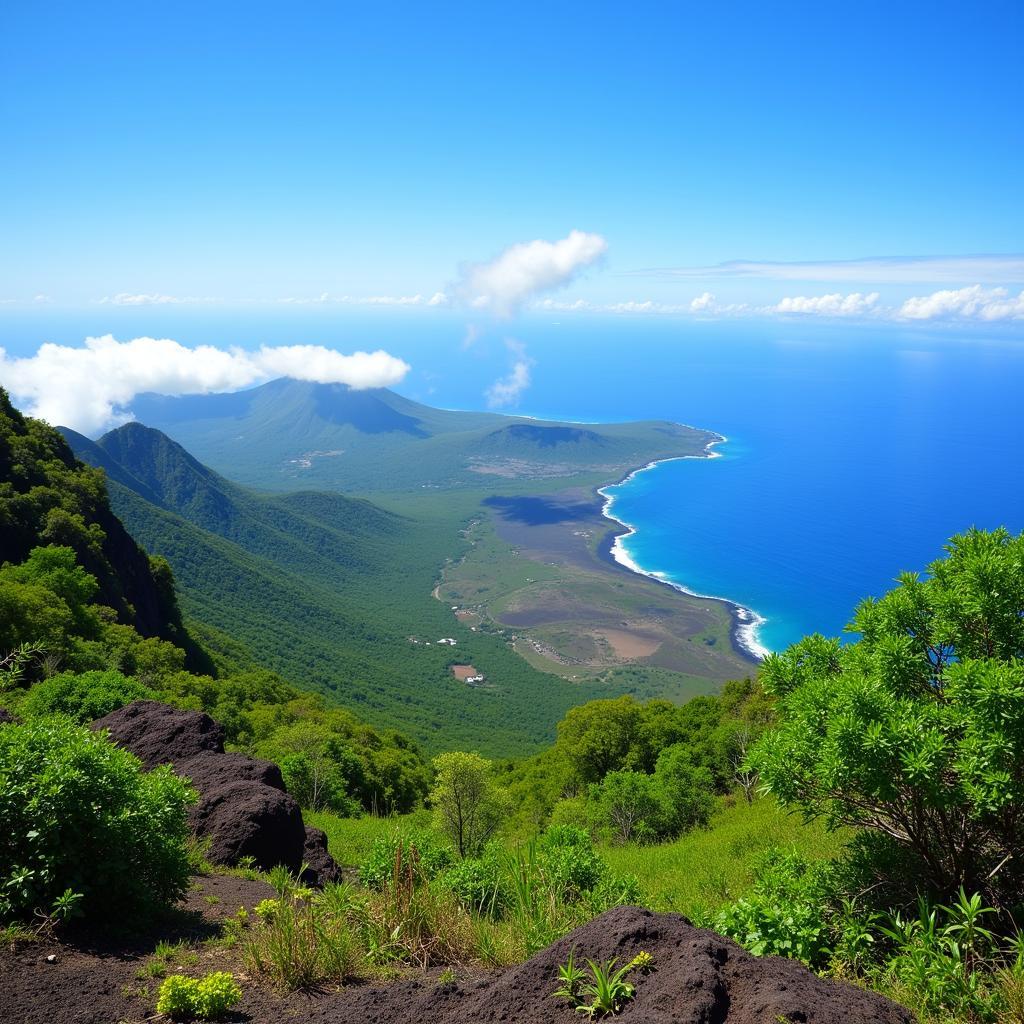African Conservation Experience Jobs: Your Guide to a Rewarding Career
African Conservation Experience Jobs offer a unique opportunity to contribute to preserving the continent’s incredible biodiversity while gaining valuable skills and experience. These roles cater to a diverse range of interests, from hands-on wildlife management to community engagement and research. This guide will explore the different types of African conservation experience jobs, the qualifications needed, and how to find your perfect role.
Working in African conservation is more than just a job; it’s a calling. It’s about making a tangible difference in the future of endangered species, fragile ecosystems, and the communities that depend on them. Whether you’re a seasoned conservationist or just starting out, Africa offers an unparalleled setting to put your passion into practice. For those seeking hands-on experience, an African Development Foundation internship might be a valuable starting point. You can learn more at african development foundation internship.
Exploring Different Types of African Conservation Experience Jobs
The African conservation job market is as diverse as the ecosystems it seeks to protect. There are numerous opportunities available, depending on your skills and interests.
Wildlife Management and Research
This area involves directly working with wildlife, from monitoring populations and conducting research to mitigating human-wildlife conflict. Roles can range from wildlife rangers to research assistants and field biologists. These jobs often require a strong scientific background, physical fitness, and adaptability to challenging conditions.
Community-Based Conservation
Recognizing the importance of involving local communities, many conservation projects focus on sustainable development and empowering local people. These jobs might involve community outreach, education, and developing eco-tourism initiatives.
Environmental Education and Advocacy
Raising awareness about conservation issues is crucial for long-term success. Environmental educators work with schools, communities, and tourists to share knowledge and inspire action. Advocacy roles involve influencing policy and promoting sustainable practices.
Veterinary Services
Wildlife veterinarians play a critical role in maintaining animal health and responding to disease outbreaks. These jobs often require specialized training and experience working with wildlife species.
What Qualifications Do You Need?
The qualifications required for African conservation experience jobs vary depending on the specific role. However, certain skills and qualifications are highly valued:
- Relevant Education: A degree in biology, ecology, environmental science, or a related field is often required for research and management positions.
- Practical Experience: Volunteering, internships, and previous conservation work are highly advantageous.
- Field Skills: Experience in data collection, wildlife monitoring, and using GPS and other field equipment can be essential.
- Language Skills: Knowledge of local languages can be a significant asset, especially for community-based roles.
- Passion and Commitment: A genuine passion for conservation and a willingness to work in challenging environments are crucial.
Looking at specific endangered species offers another avenue to explore conservation work. For instance, learning about the plight of the African elephant can provide context for your job search. You can find more information on this topic at african elephant how did it get endangered.
How to Find African Conservation Experience Jobs
Finding the right African conservation experience job requires a proactive approach:
- Online Job Boards: Websites specializing in conservation and international development often list job openings in Africa.
- Conservation Organizations: Research and contact NGOs, government agencies, and research institutions working in African conservation.
- Networking: Attend conservation conferences, workshops, and career fairs to connect with professionals in the field.
Tips for a Successful Application
When applying for African conservation experience jobs, highlight your passion, skills, and experience:
- Tailor Your CV and Cover Letter: Customize your application to each specific job, emphasizing relevant skills and experience.
- Showcase Your Passion: Clearly demonstrate your commitment to conservation and your understanding of the challenges and opportunities in Africa.
- Prepare for Interviews: Research the organization and the specific role, and be ready to discuss your qualifications and motivations.
The African Conservation Foundation frequently has open positions. Check out their current opportunities at african conservation foundation jobs.
Conclusion: Embark on Your African Conservation Journey
African conservation experience jobs offer a unique and fulfilling career path. By understanding the different types of roles available, developing the necessary qualifications, and proactively searching for opportunities, you can contribute to the vital work of protecting Africa’s natural heritage. Start your search for African conservation experience jobs today and make a lasting impact.
FAQ
-
What is the typical salary for African conservation experience jobs? Salaries vary greatly depending on the role, organization, and location. Entry-level positions may offer stipends or modest salaries, while more experienced positions can offer competitive compensation.
-
Is it safe to work in African conservation? Safety is a paramount concern. Organizations prioritize the safety of their staff, and proper training and precautions are essential.
-
What are the living conditions like for conservation jobs in Africa? Living conditions can vary from basic field camps to more comfortable accommodations, depending on the location and project.
-
Do I need to speak a local language? While not always required, knowing a local language can be highly beneficial, especially for community-based work.
-
How can I gain experience before applying for paid positions? Volunteering, internships, and research projects are excellent ways to gain valuable experience.
-
What are the long-term career prospects in African conservation? With growing awareness of environmental issues, the demand for skilled conservation professionals is expected to increase.
-
What is the best time of year to apply for African conservation jobs? Job postings can occur throughout the year, but it’s good to research specific organizations and their hiring cycles.
Other questions regarding African wildlife conservation:
Perhaps you’re also interested in the legality and ethics surrounding hunting specific species in Africa? More information can be found at african bongo hunt.
Need more information?
Explore other articles on our website for further insights into African wildlife, conservation efforts, and career opportunities.
Call to Action:
For assistance with your African conservation journey, contact us: Phone: +255768904061, Email: kaka.mag@gmail.com, or visit us at: Mbarali DC Mawindi, Kangaga, Tanzania. Our customer service team is available 24/7.

